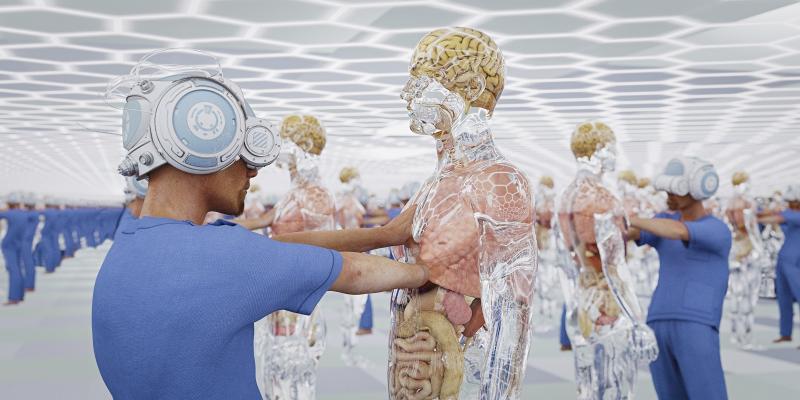
Article
Artificial Intelligence in Healthcare - What Will Be the Impact?
The use of artificial intelligence (AI) in healthcare has the potential to revolutionize the development, delivery, and performance of medical interventions. AI’s ability to help cut costs, increase access to quality healthcare, and improve diagnostic testing make the application of this technology a no-brainer for many healthcare professionals (HCPs).
AI has the potential to save the United States $150 billion annually by 2026 and improve healthcare outcomes by 30 to 40 percent. Areas that have already seen progress using AI include:
- Helping with cancer detection and other diagnoses
- Drug research in clinical trials
- Identification of patients at risk of developing certain illnesses
The true value of artificial intelligence may be seen during an era of labor shortages in the healthcare industry. It could prove to be vital in an age where demand for healthcare-related workers, an aging global population, and intensifying health threats such as COVID-19 have the potential to cripple arguably the world’s most important industry. The healthcare industry’s “iron triangle”, which has struggled with balancing its three core components (access, affordability, and effectiveness), could benefit greatly because of efficiencies achieved with artificial intelligence.
AI in Clinical Settings
While AI is poised to alter the landscape of healthcare marketing, drug manufacturing, and more, perhaps its most promising application will be in its transformation of the clinical setting, where we will see advancements such as:
- Robot-assisted surgery
- Virtual nursing assistants
- Pharmaceutical dosage error reductions
Preliminary diagnosis is another area where this technology has the potential to optimize outcomes. Today, diagnostic errors account for 10 percent of patient deaths and 6 to 17 percent of hospital complications. With the integration of AI into early intervention, a faster, more accurate diagnostic technology will have the potential to significantly reduce misdiagnoses and inherent issues following an error.
Artificial intelligence also comes with the equally enticing potential of redesigning administrative tasks in the healthcare system, aiding with voice-to-text transcription of medical records and chart notes or automating test orders and prescriptions. In reality, we will find many ways where AI can help streamline and optimize healthcare delivery.
AI in Healthcare Marketing
Within the healthcare supply chain, pharmaceutical and medical device brands are taking advantage of artificial intelligence technology to restructure how they market their products to their target audiences. AI applications in healthcare marketing can include:
- Data analysis to help optimize budgets for a greater return on investment
- Population data aggregation for more accurate and robust patient profiles
- Chatbots on websites for easier engagement with patients, HCPs, and other interested parties
- Improved targeting through data from heat maps, search terms, clicks and other behaviors
- Lead scoring according to health risk, location, age, or other attributes
For marketers targeting HCP audiences, AI has the potential to optimize advertising campaigns, conference practices, distribution activities, and more.
There are many reasons to be excited about what AI brings to healthcare marketing and the medical industry in general. Machine learning and improved engineering have driven significant advancement over the past five years alone. As this advancement continues, we may find even more ways to deploy AI in this space.
You don’t need AI to decide where to advertise - check out Elsevier’s respected digital and print solutions that lead the industry in reaching HCPs where they live and work.
Article Written by: Alex Brown


